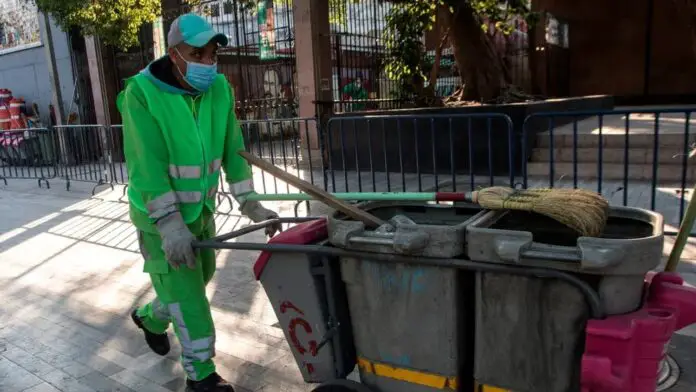The workforce in this sector is made up of 1.9 million people, of which more than 60% are women
Cleaning workers, also known as street sweepers, are essential to the daily life of each city, municipality or community, since they are in charge of keeping the streets free of garbage and thereby avoiding diseases and obstructions on public roads and even, make the sidewalks look clean and tidy.
Although many see them as heroes and their work is essential, the job of street sweeper is still stigmatized and has low salaries, this is talking about those who only dedicate themselves to cleaning the streets and not those who work in hotels or restaurants. We tell you what your monthly salary is.
What is the average salary of a sweeper or cleaning worker?
According to the federal government’s Data Mexico page, at the end of the second quarter of 2023, the workforce of Sweepers and Cleaning Workers (Except in Hotels and Restaurants) in the country is made up of 1.09 million people, of which 35.3% are men and 64.7% are women.
Of the total, the average age is 45 years and they have an approximate monthly salary of 4,790 pesos, working around 37.9 hours a week.
However, when separated by gender, men have an average salary of 5,000 pesos, while that of women is 4,620 pesos.
According to the same platform, the best average salaries received by sweepers and cleaning workers during the same period were in Baja California Sur, with a payment of 7,480 pesos per month; Nayarit, with more than 6,600 pesos; and Nuevo León, with 6,340 pesos per month.
The states with the largest workforce of cleaning workers are the State of Mexico, with 128 thousand; Mexico City, also with 128 thousand and Nuevo León, with 81 thousand.
The study detailed that in the second quarter of 2023, the employed population was higher in Employment Services, with 28% of the workforce; Higher Technical Education schools, with 8.84%; and Treatment and Final Disposal of Waste, with 4.58 percent.
Source: Infobae






